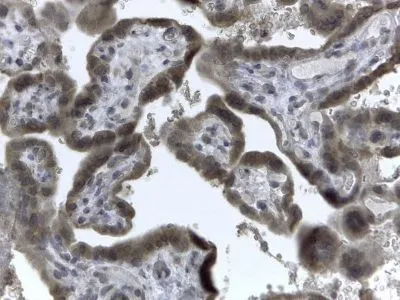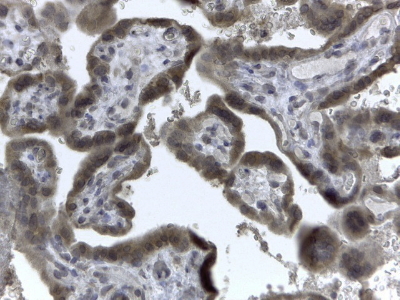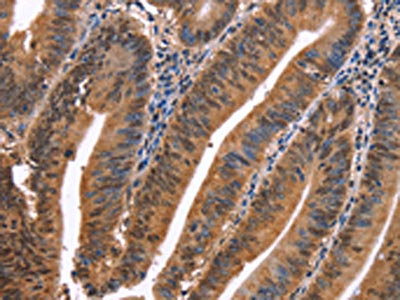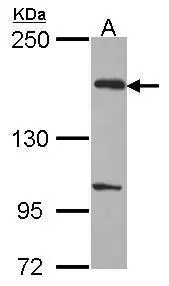
IHC-P analysis of human placenta using GTX89863 EVC2 antibody, C-term. Antigen retrieval : citrate buffer pH 6 Dilution : 2μg/ml
EVC2 antibody, C-term
GTX89863
ApplicationsImmunoHistoChemistry, ImmunoHistoChemistry Paraffin
Product group Antibodies
ReactivityHuman
TargetEVC2
Overview
- SupplierGeneTex
- Product NameEVC2 antibody, C-term
- Delivery Days Customer9
- Application Supplier NoteIHC-P: 2-4microg/ml. *Optimal dilutions/concentrations should be determined by the researcher.Not tested in other applications.
- ApplicationsImmunoHistoChemistry, ImmunoHistoChemistry Paraffin
- CertificationResearch Use Only
- ClonalityPolyclonal
- Concentration0.50 mg/ml
- ConjugateUnconjugated
- Gene ID132884
- Target nameEVC2
- Target descriptionEvC ciliary complex subunit 2
- Target synonymsLBN, WAD, limbin, Ellis van Creveld syndrome 2, ellis-van Creveld syndrome protein 2
- HostGoat
- IsotypeIgG
- Protein IDQ86UK5
- Protein NameLimbin
- Scientific DescriptionThis gene encodes a protein that functions in bone formation and skeletal development. Mutations in this gene, as well as in a neighboring gene that lies in a head-to-head configuration, cause Ellis-van Creveld syndrome, an autosomal recessive skeletal dysplasia that is also known as chondroectodermal dysplasia. Mutations in this gene also cause acrofacial dysostosis Weyers type, also referred to as Curry-Hall syndrome, a disease that combines limb and facial abnormalities. Alternative splicing results in multiple transcript variants. [provided by RefSeq, Oct 2009]
- ReactivityHuman
- Storage Instruction-20°C or -80°C,2°C to 8°C
- UNSPSC41116161







